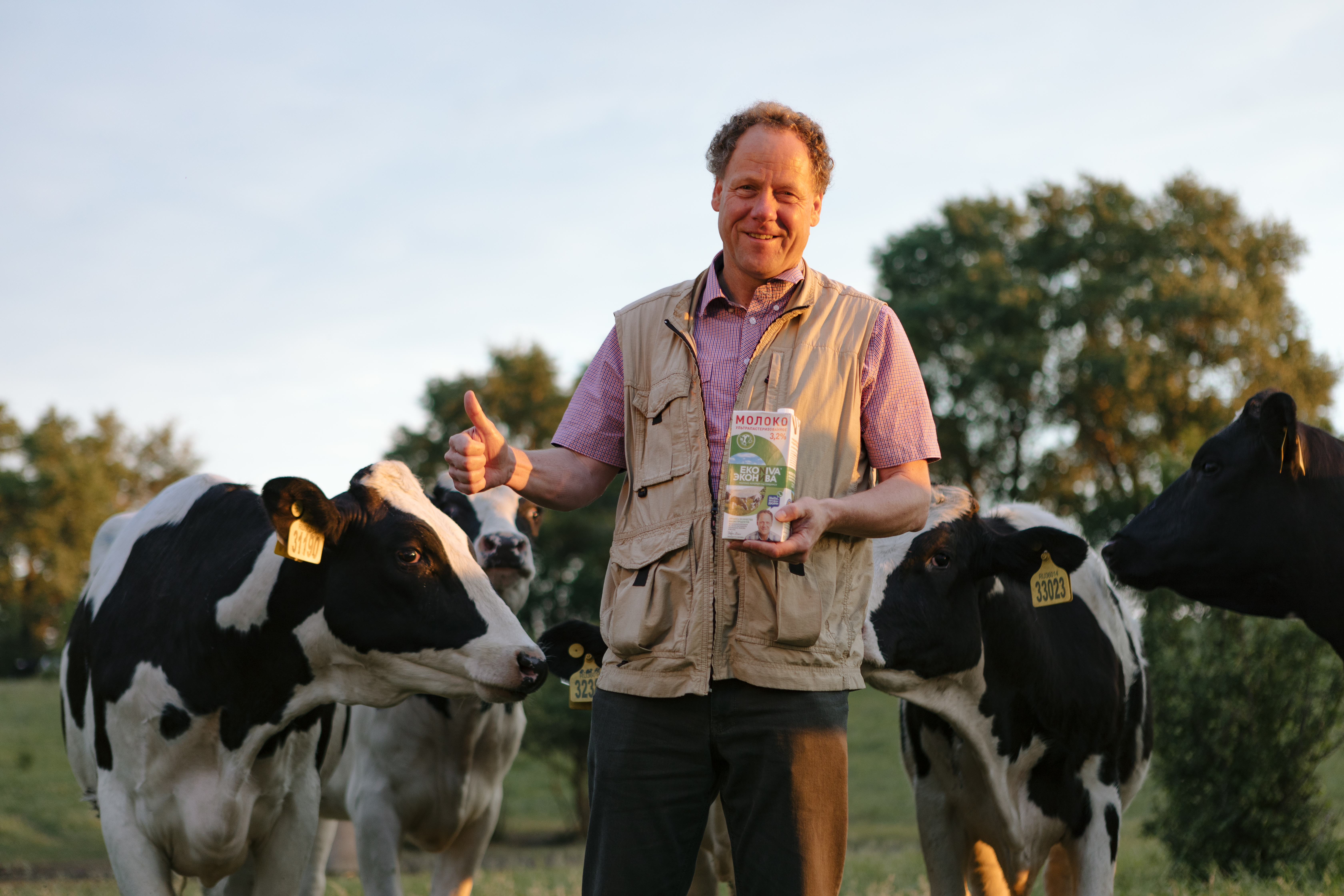Foreword Stefan Duerr EkoNiva News Edition No 68
18 August 2020 News from the Company
Who else but Russia
In a few years, Russian dairy producers will saturate the domestic market, so it is high time to think where to head for. Export to Asian and European countries opens a new pathway to success. Brooking no delay, EkoNiva has started off by turning its focus to China. At the end of June, the first batch of dairy products was supplied to the Middle Kingdom. Its market has an enormous potential. Moreover, today it has become even more dynamic than before the coronavirus pandemic. The Chinese strongly believe that dairy produce boost the immune system and help people to stay healthy even in the most challenging conditions.

What does Russia have on offer? We can break into the Chinese market with commodities like milk powder and whey powder. However, a good discount will be required for the first sales, hence this group of goods will bring a lower profit margin. Of course, we could export UHT dairy products to China as other exporters do. But we can do much better – supply branded products – curds, quark and yoghurt – with an extended shelf life of up to 30 days. This is an indisputable competitive advantage. Exporters from Europe and New Zealand ship their goods by sea and it is impossible for them to supply products with such a short shelf life. Only Russia can meet this challenge!
We have a railway connection between Novosibirsk and Beijing. Trains cover this distance within just four days. Recent market research has indicated that the main criteria Chinese customers consider when choosing dairy products are quality and freshness – and that is what we can deliver. It is very good that Russian dairy produce have gained a good reputation in China. The Chinese believe that the harsh climate, rich nature and vast expanses of land allow our cows to produce exceptional milk with a very special taste and great nutritional benefits that make people strong and healthy.
However, the task is not as easy as it seems. There still remain a few challenges. First, even though China is our neighbor, the freight rates are much higher than those imposed for European countries. Our German colleagues send a container of dairy products by sea for 1,000 euro, and we, being much closer, – for 3,500 euro. Another issue is certification costs. We have spent 500,000 rubles, while German exporters pay only 30 euro per batch. Export expansion calls for improving logistics and reducing certification costs, which will ensure a competitive edge for Russian products and allow us together with the Russian Export Development Centre and the Russian Export Agency to enter the world markets and create a good image of Russian milk.
Stefan DUERR, President of EkoNiva Group
